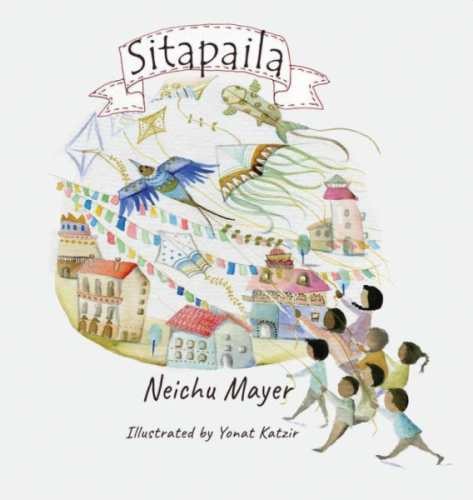Neichu Mayer, author of the newly published book ‘Sitapaila.’

Vishü Rita Krocha
Kohima | June 3
“Call me a storyteller. I love stories, and I love telling stories.” Neichu Mayer, author of the newly published book “Sitapaila” that recounts the story of their life in Nepal, says. Having moved there in 2014 on her husband’s diplomatic mission, Sitapaila, perched on a small hilltop outside the ring road in Kathmandu is a ‘magical place’ for her son, and also where he celebrated his first birthday.
“So the book is first and foremost for him. It is about him and his cat's experience of relocation, finding new friends and making memories,” she enlightens while adding that, “I also wrote the book for families like us who often have to relocate with children.” “Relocation is exciting and fun, but it also comes with many uncertainties and causes tremendous anxiety, especially for children,” she relates.
Stating that their three years in Nepal were exciting and challenging, she also recalled that “at the same time we went through some very profound life-changing experiences.” She cited the instances of a disastrous avalanche in the Himalayas, followed by a tragic bus accident in another part of the Himalayan Mountains, and the 2015 Nepal earthquake, which, she recollects was a traumatic experience.
They eventually returned to Israel but of Nepal, she reminisces, “Although we encountered many difficulties, we were profoundly touched by the Nepali people's beautiful human kindness and resilience.” “Through this book, I wanted to show that our life in Nepal was quite normal and happy”, she divulges.
Neichu Mayer would describe herself as a happy housewife, a mother and a passionate reader. She is involved with community outreach in Jerusalem where they live, and with a global network of Women Creators of Peace. Born and raised in Kohima, she was later trained in counseling, humanitarian and community development work and had worked with many NGOs and development agencies, including the United Nations. Her last assignment was with UNAIDS, Nepal wherein she met her Israeli husband in Yangon, Myanmar, in 2008, where she worked for 6 years.
Growing up as a teenager in Kohima, she would further recall a profound experience she had on her way back from church, where she witnessed a massive commotion near a store called ‘April Showers’. There, she witnessed a baby wrapped in some cloths and left by the drainage, and the scene left her deeply disturbed. “When I got home, I couldn't stop talking about it to my mother,” she relates. That was when her mother suggested that she write about it in the newspaper and her first article was published then.
“My mother is a fervent reader, and she encouraged us to read from a very young age. She also often urged us to write down our feelings and experiences. Part of her disciplining tactic was making us write. Today one of my sisters is also a writer, and I think it stems from our early exposure to expressing our feelings in writing, which our mother advocated consistently,” she puts across. Part of her work in the field of development has been writing policy papers and programme strategies and Neichu Mayer has done a considerable amount of writing at work, and is still actively involved in writing briefing papers for organizations that need help. “Being able to write is a gift, and I want to use my gift to help others,” she affirms.
She also feels that writing is a great way of giving life to ideas and sharing it with the world” while sharing her next big dream to get Sitapaila translated into Hebrew and Arabic, and also Nepali.”
Sitapaila is a 25-paged children’s book, illustrated by Yonat Katzir, who has done over 200 children's books and published by Olympia Publishers. Dwelling on the challenges of finding a suitable publisher, she says, “I was incredibly fortunate that the first one on my wish list accepted to review my script, and agreed to publish it, although it took a long process before I received a positive note from them.” “Once they agreed to publish my work, everything went smoothly. I enjoyed working with the various teams in Olympia publishers. They were extremely professional and very supportive throughout the process,” she further highlights.
On her Naga upbringing having a role to play in her writing, she feels that “We Nagas make great stories, and people love stories. We may not realize it, but newspapers, magazines and journals in Nagaland are very receptive to publishing articles from everybody, which certainly has helped a lot of us in enhancing our confidence in writing.”
“Over the years, whatever short pieces I wrote were published in various newspapers and magazines, and I do not doubt my writing confidence started there,” she maintains.






